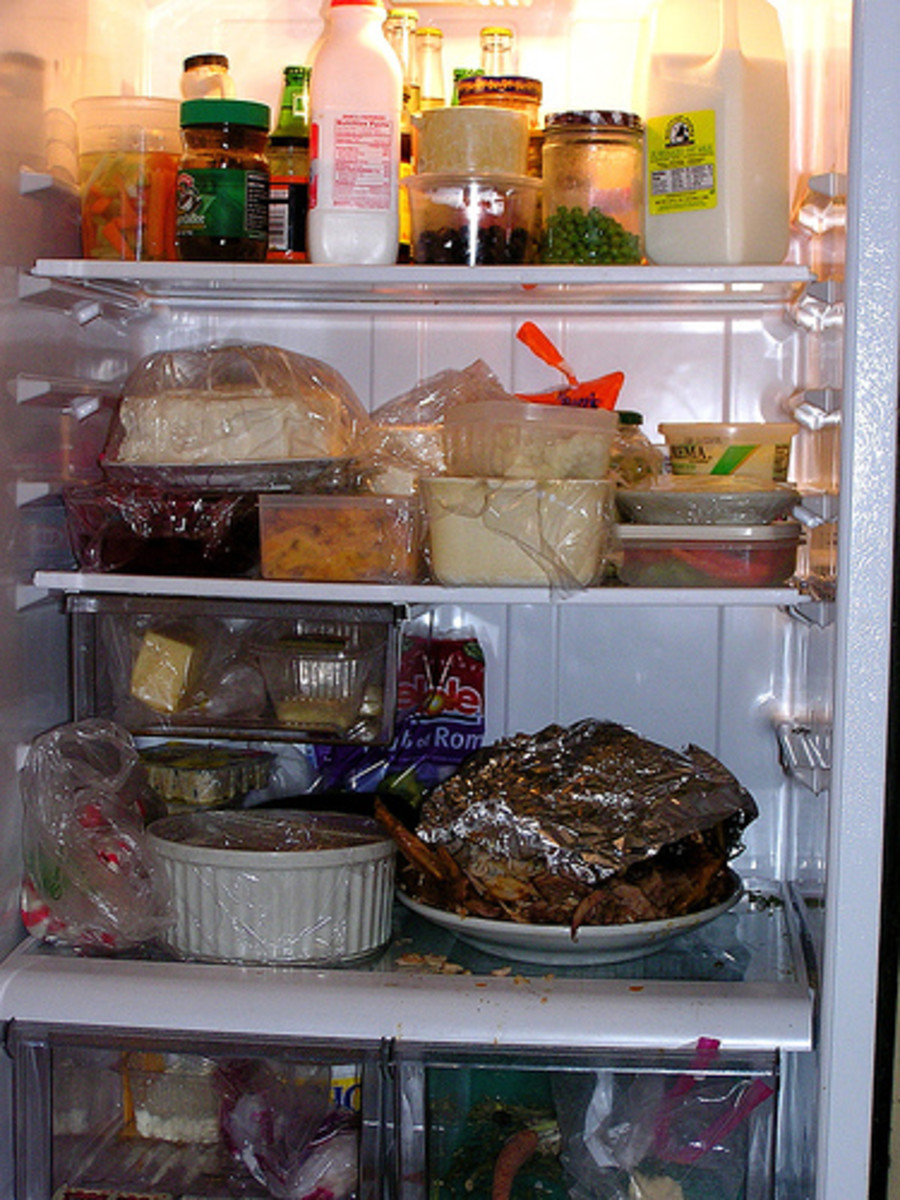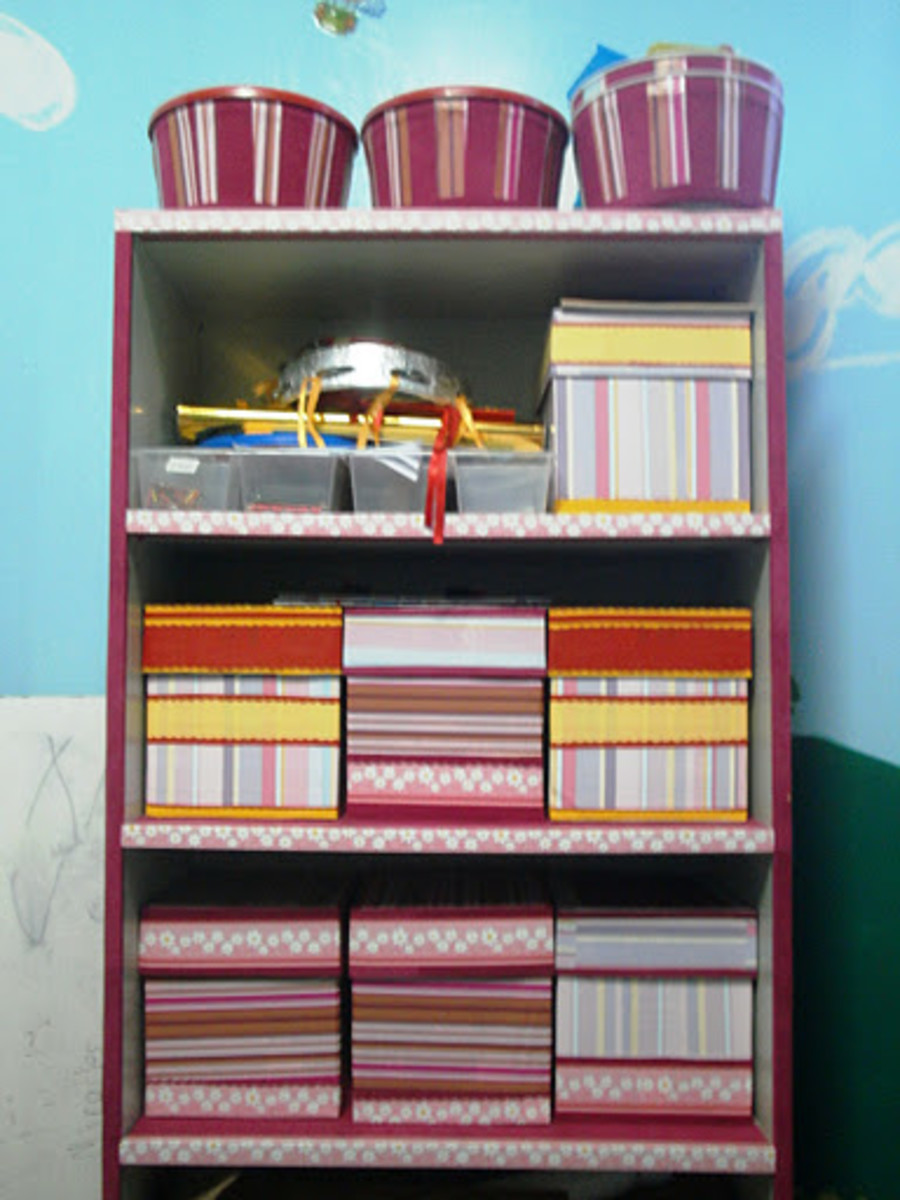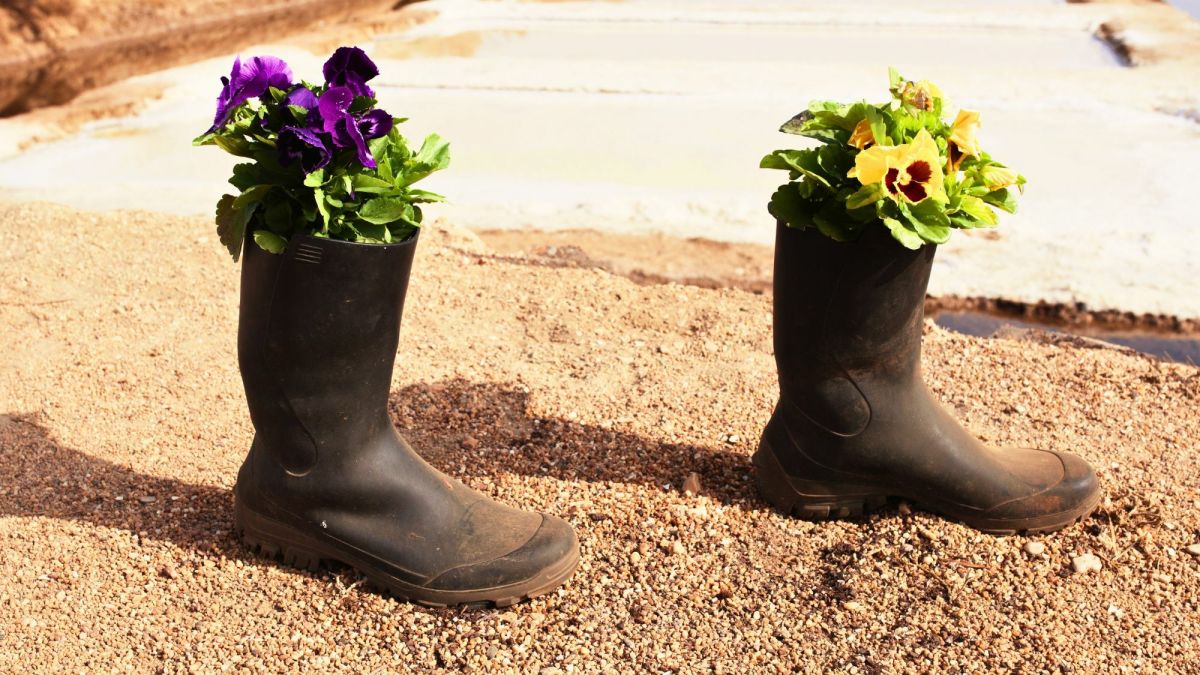Healthy Cleaning Hints for the Kitchen, to Protect Your Family
A good broom is the best tool for cleaning your kitchen

Keep a Healthy Kitchen
I have read several articles over the past months that had a suggestion or two for cleaning your home, or specifically your kitchen items that are eventually; past their “use date”, worn out, or just need replacement for one reason or another.
Also, many of us do not realize that the kitchen is actually the "Grand Central Station" of our home.
Because of this, it has the probability of being the main depository of dirt and bacteria to be brought in from the outside world.
Take a minute and think of the things that we all walk into our houses and drop onto our kitchen counters and table tops, such day to day items as; briefcases, bags of purchases, kids books and backpacks from school, hubby's tools, jackets, and on , and on.
Because of this and our need to clean properly if only for our meal preparations, here are some of these items that I recommend for you to look at, in your home.
And, after that you should consider making those hard decisions on whether it is time for some of the things i your kitchen to go away or at least be cleaned properly and regularly.
Canned Goods
We all have canned foods that have been pushed to the back of our pantry and forgotten. These are usually items that you don't use very often in your daily meal planning and somehow, over time, they were just forgotten.
Annual Cabinet Inspection
Go through your cabinets once a year and look on all of the canned goods for any date codes that have passed, or are due to pass,very soon.
As a rule of thumb, some food experts recommend that canned tomatoes and even fruits are usually good for eighteen months or more, while most canned vegetables can easily last for up to five years when stored in a normal home environment
It is recommended that you remove these older canned items from your cabinet and do one of two things;
- Just throw them away and be done with the problem,
- if you are the adventurous type, and it is an item that is to be cooked, you could open them and inspect the contents carefully.
If, you decide these older dated items seem to be OK then cook them well and use them. But, either way, get rid of these outdated foods immediately.
Herbs and Spices
The majority of Herbs and Spices do not actually go Bad, per se.
But, their flavor can deteriorate over time, especially if they are not sealed in their container properly.
Go through your collection of Herbs and Spices and separate the ones that you use regularly from the older ones that you may have used only once, several years ago, or only once or twice over the past year.
The ones that are in well-sealed containers, and still smell and taste fresh can be kept, if you think you will continue to use them.
The ones that are either; stored in cardboard boxes, cheap plastic bags or other containers that do not have a good seal should be tested also, and if you think they are deteriorated, get rid of them.
One good rule from the manufacturers of Spices is to always get rid of those that are over two-three years old.
Really, you can afford to put these rarely used Herbs and Spices on a list of what you do not have and when you run across a recipe that calls for it, you can purchase a fresh (well-sealed) container.
A typical Fridge full of Leftovers

Leftovers
OK, you made a lot of single decisions throughout the winter and kept those leftovers from one favorite dish, or another, of yours.
So you made a decision, each time, that you would keep it in the fridge, or freezer, and eat it with a meal in a few days or weeks.
So, you package it and then thrust it into your fridge/freezer, closed the door. And it sat there, in the darkness and was slowly pushed to the back of the shelf and eventually forgotten.
Well, you didn’t eat it, it has either been there, in the fridge slowly evolving into something other than that delicious dish you put away for later, or slowly turned into a frozen, dried out hockey puck in the freezer. And now, in your need for more storage room, you have a dozen or more of these containers half full of strange foods.
Honestly, you should just throw them away, and leave them in those old plastic containers (see below about old plastic containers). dmity it, you are not going to eat these, so the safest thing for you and your family is to just get rid of them.
And the next time you have leftovers? Try to keep your leftovers in mind and use them up within a few days of storing them. Also, do not warm these leftovers up in those plastic containers, because of the effect of heat on the plastic and the increased risk of leeching those dangerous BPA chemicals into the foods.
It is recommended that you store your leftovers in glass containers with lids in the future.
Glass Storage Containers

Plastic Containers, Bottles and Can Liners
There are a couple of reasons for inspecting your plastic containers, all of them, from water bottles, to plastic food storage containers, to plastic pitchers.
The first reason is the potential presence of the chemical BPA being in and potentially leeching from polycarbonate plastic bottles and other containers including those favorite Tupperware containers made before 2010.
With plastic storage containers that have a recycle code of 3 or 7, DO NOT MICROWAVE food in these, or wash them in hot water with other dishes.
The heat will accelerate the leeching of this dangerous chemical form these plastics.
As to water bottles, throwing those old plastic ones away is the best bet. Go to your local sporting goods store, and you will find a number of manufacturers of the new designs of metal ones.
Glass storage containers are the recommended item these days in order to avoid the potential chemical leeching problems associated with using plastic containers, and even though they may take up a little more area for storage, they do not wear like plastic and you can clearly see what is stored in them.
Many of your canned goods are in metal cans alright, but the inside of the metal cans is usually lined with the same BPA leeching polycarbonates, so you should try to eat more fresh foods, or even fresh-frozen foods and keep less canned foods in storage.
Kitchen Sponges and Dish Towels
Those dish cleaning and other cleaning sponges are known to be one of the highest bacteria containing items in your kitchen.
First of all, throw those old worn ones away, regularly.
Secondly, the ones still in good shape can be cleaned by placing them in a container of water and microwaving them for one or two minutes. This should kill any residual bacterial in the sponge.
As to Dish Towels?
Do not leave these bacteria collectors lying around. If you think about it, you are using them for some pretty dirty tasks..
They are either absorbing bacterial residue of that dirty dishwater (yes, even if you rinse them well) or they are used for absorbing that raw food residue that you wiped up with them.
If you can, convert your counter top cleaning to using paper towels and throwing them away after use.
And use your dishwasher for cleaning your dirty dishes. A lot of the newer dishwashers are much more energy efficient that those older ones, in case this is your concern.
Use your dishtowels to dry your hands when necessary, otherwise, take care to avoid spreading bacteria with them.
Counters, Garbage Disposals and Sinks
Your kitchen is where you generate you meals for yourself and your family.
It is designed with counter-tops, shelving, and appliances that you utilize regularly in your food preparation.
You need to make sure that, once the meal is prepared or right after the meal, you clean everything properly before you put things away for the next time you use them.
Garbage Disposal-
Your Garbage Disposal is a great dark place for bacteria to grow. normally, your food leftovers and preparation debris will be passed through and into your drainage system properly if you run it for that extra minute or two to make sure this happens,
But, sometimes, the blades will have food particles attached to them that if left for a period of time will start to rot.
Many people will occasionally, say once a week, quarter a lemon and run it through the disposal in an effort to get rid of this smell.
Counter Tops-
Wipe those counter tops down several times a day. That's right several times a day. You aren't the only ones walking through the kitchen. Your whole family are walking through, eating snacks, leaving their personal items like back packs, books, jackets, etc. on the counter tops and then leaving.
To you the counter may still look clean but these items can leave some nasty bacterial on your counter top that may contaminate your foods you are preparing for your next meal.
It is recommended that you keep a bottle of a good kitchen cleanser available and just spray and wipe the counter with a paper towel at least before you prepare your next meal.
Sinks-
You throw everything in your sink, including your dirty dishes before you clean them. Keep the sink empty by rinsing the dirty dishes you find several times a day and placing them into your dishwasher until it is full and ready to be run.
Then, wipe the sink down with your kitchen cleanser.
This content is accurate and true to the best of the author’s knowledge and is not meant to substitute for formal and individualized advice from a qualified professional.








